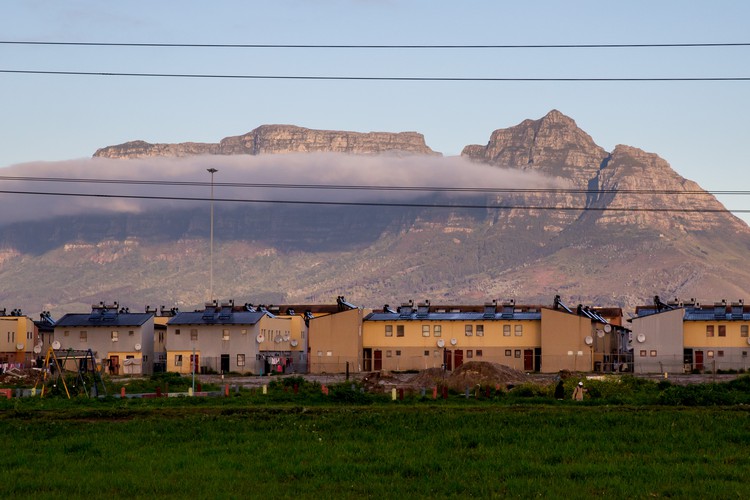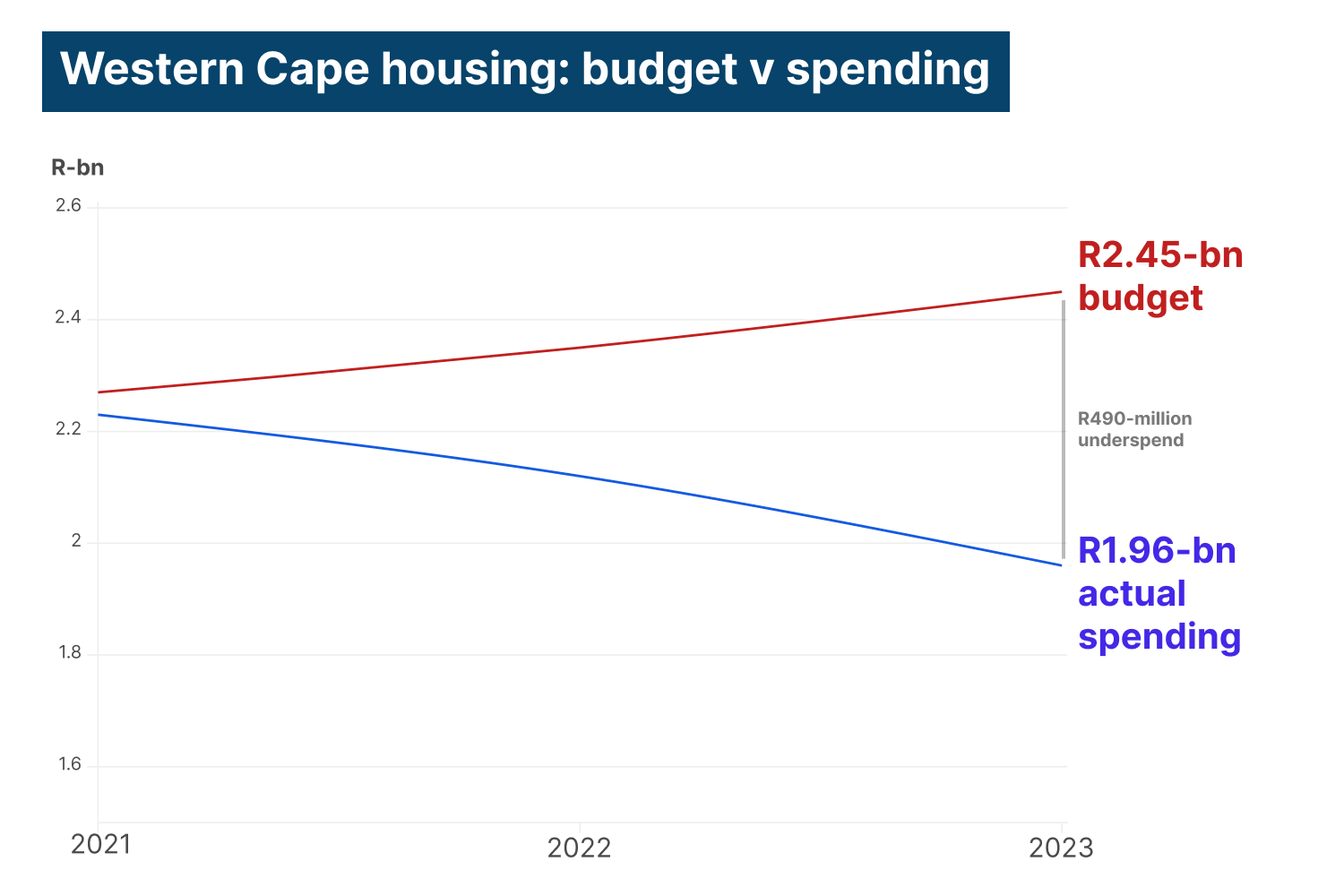
9 April 2025
RDP houses in Langa, Cape Town. Archive photo: Ashraf Hendricks
MEC for Western Cape Infrastructure Tertuis Simmers announced this week that he intends to finalise the tenders for three major inner-city housing projects built on state-owned land in Cape Town.
The three projects will be funded by a combination of private sector and public funding. They are:
Presenting his department’s budget for the 2025/26 financial year in the provincial legislature on Monday, Simmers listed a further four developments in the planning and approvals stage, including:
Simmers also said that the province’s plans for the former Tafelberg School property, part of which the province intends to use for affordable housing, will be presented to interested and affected parties in May.
Several other properties in Cape Town are in the initial stages of “enablement, de-risking, analysis”, including Plantation Road, De Novo, the Government Garage Precinct, and Mandarin Court.
Buhle Booi, head of political organising at housing activist organisation Ndifuna Ukwazi, cautiously welcomed the announcement by the provincial government, but pointed out that progress on these projects has been very slow.
“Sites like the Founders Garden and Prestwich Precinct were earmarked for housing as far back as 2014,” said Booi.
He said they planned to participate in the public participation phase of the Tafelberg site to seek more clarity. Ndifuna Ukwazi has been in a lengthy legal battle with the Western Cape government over the Tafelberg site.
Booi acknowledged the fiscal pressure experienced by the Western Cape government. He called on the national government to allocate more money for social housing projects.
For 2025/26, the Western Cape government has dedicated R1.6-billion to the development of human settlements, R325-million for the upgrading of informal settlements, and R45-million to accelerate housing delivery.
But the infrastructure department has struggled to spend its full housing budget over the past three years. It underspent its budget by R45-million in 2021, R227-million in 2022, and R488-million in 2023. 2024 figures are not yet available.
In 2023, the department had R250-million cut from its housing grants by the national government due to underspending. The department has attributed the underspending to poor contractor performance, community unrest and extortion.

Source: National Treasury | Figures include spending on Human Settlements development, asset management, and needs, research and planning | Graphic by Daniel Steyn/GroundUp News
In the 2024/25 financial year, which ended on 31 March, the national government cut R300-million from the Western Cape infrastructure department’s budget.
Simmers told the provincial legislature on Monday that he has lodged an intergovernmental dispute over this: he says the province was on track to spend the full grant amount and that the national government used outdated, second quarter spending figures to justify the reallocation.
Opposition parties in the provincial legislature had mixed reactions to the housing budget. Pat Lekker of the ANC said the housing backlog in the province had grown to 620,000 families.
“That is not just a number - that is 620,000 families living in shacks, in backyards, in overcrowded homes with no hope for a better life.”
Brett Herron, the GOOD party’s Secretary-General, raised concerns that the involvement of the private sector in the developments could lead to “user fees for essential services, and reduced public accountability.”
In his response to criticism, Simmers said the budget shows that the provincial government did not have to rely only on funding from the national government. “They do not keep pace with what’s happening on the ground. This is why there is a call to the private sector for investment.”